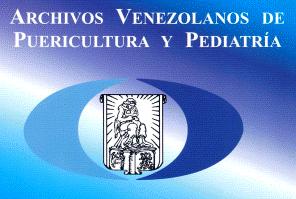Conocimientos sobre fiebre y conductas de los residentes del postgrado de pediatría ante un paciente febril
Palabras clave:
Fiebre, Conocimientos, Actitudes, Fever, knowledge, AttitudesResumen
Introducción: La fiebre es reconocida por médicos y pacientes como una de las más comunes e indiscutibles manifestaciones de enfermedad. Constituye la principal razón de un elevado porcentaje de consultas al médico y puede ser identificada como un problema importante, aún en ausencia de otros signos y síntomas significativos. Objetivos: Determinar el nivel de conocimiento que tienen sobre fiebre los residentes del último año de postgrado universitario de
Pediatría y las conductas que asumen ante un paciente febril. Métodos: Se realizó un estudio descriptivo y transversal entre los meses de julio y agosto de 2004. Aplicamos un cuestionario a 62 residentes de 7 hospitales ubicados en Caracas, contentivo de 30 preguntas entre cerradas y semiabiertas. Con las 10 primeras se evaluó el nivel de conocimiento y con las preguntas restantes, las conductas que asumen los residentes ante un paciente febril. Resultados: Sólo 3 % de los encuestados tuvo un nivel de conocimiento bueno sobre fiebre. Con relación a las conductas de los encuestados ante un paciente febril, encontramos que 89 % lo despierta para tratarlo, 97 % usa crioterapia y 89 % combina antipirética y crioterapia. Conclusiones: Los residentes encuestados tienen un nivel de conocimiento malo sobre fiebre y las conductas que asumen ante un paciente febril son erróneas, agresivas y desproporcionadas.
Introduction: Fever is recognized by physicians and patients as the most common and indisputable manifestations of disease. It accounts for a large percentage of visits to physicians and may be identified as an important problem even in the absence of other significant signs or symptoms. Objectives: To determine the level of knowledge of last year residents of pediatrics in regard to fever and their approach before a febrile patient. Methods: A descriptive and transversal study was carried out between the months of July and August of 2004. We applied a questionnaire to 62 residents from 7 hospitals located in Caracas, containing 30 closed or open-ended questions. The level of knowledge in regard to fever was evaluated with the first 10 questions and their approach before a febrile patient, with the following 20 questions. Results: Only 3 % of the residents had a good level of knowledge about fever. With relation to the management of a febrile patient, we found that 89% of the surveyed residents wake the child to give antipyretic treatment, 97% recommends sponging and 89% prescribes antipyretics combined with sponging. Conclusion: The surveyed residents have a low level of knowledge about fever and the management that they assume before a feverish patient is erroneous, aggressive and disproportionate.

